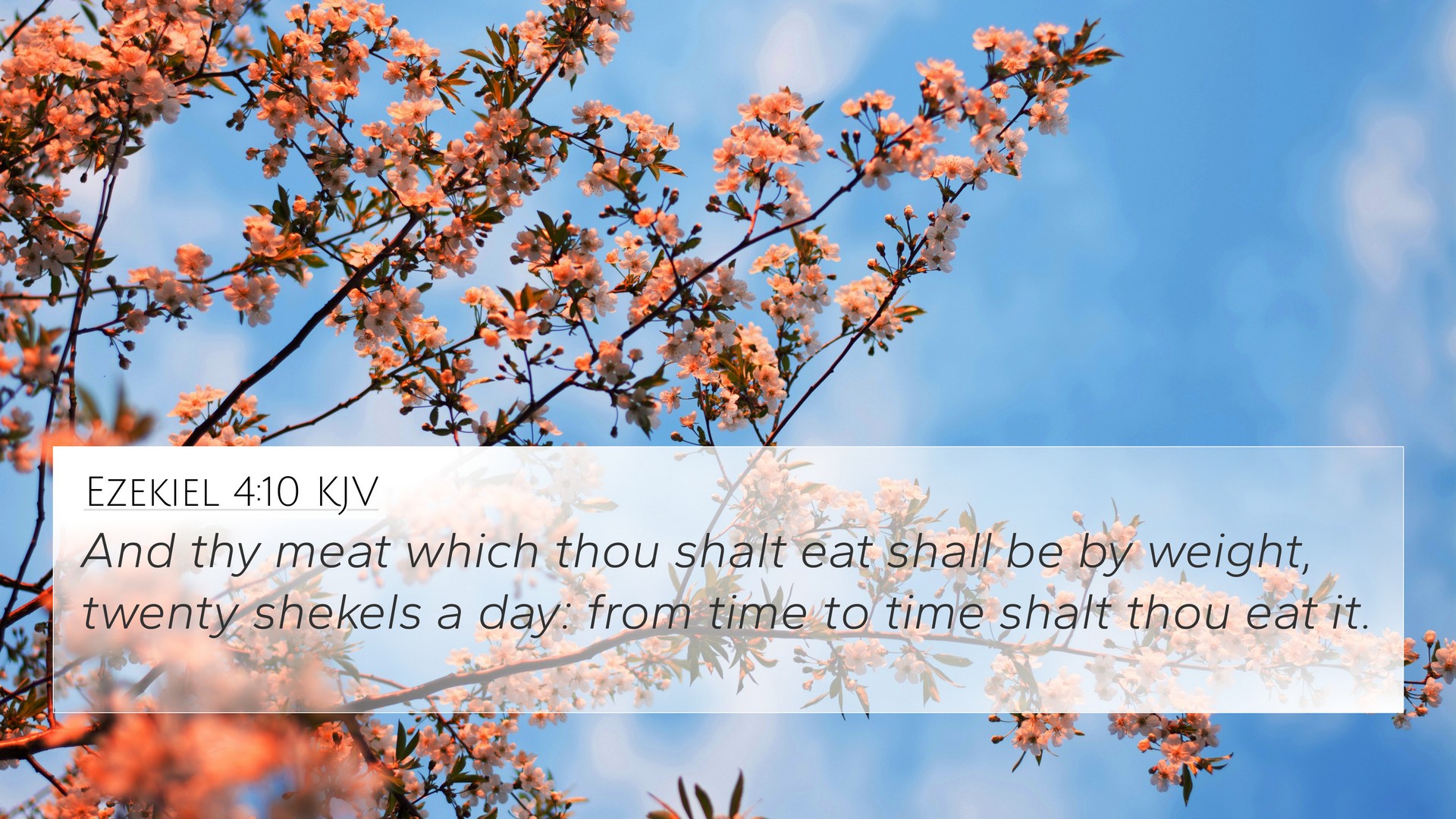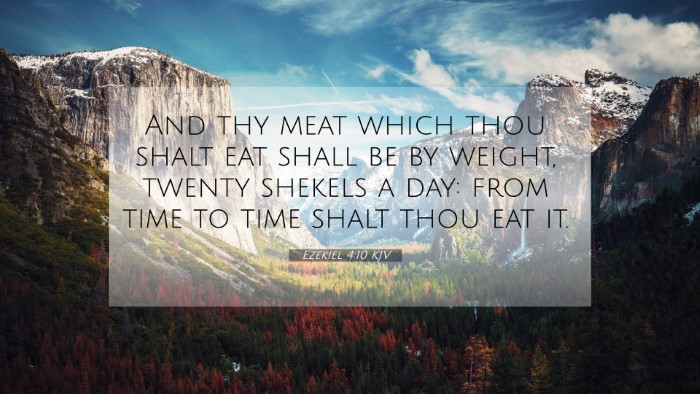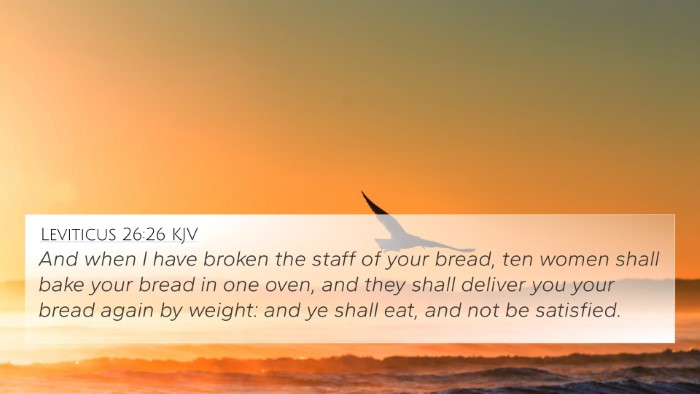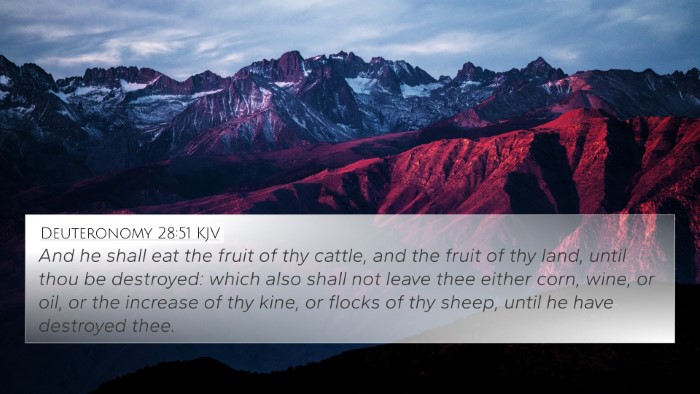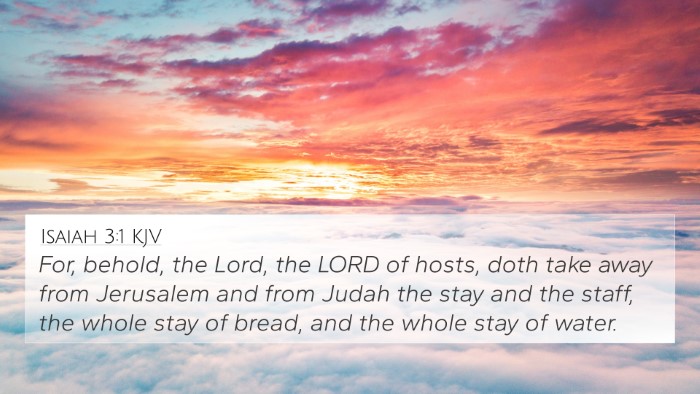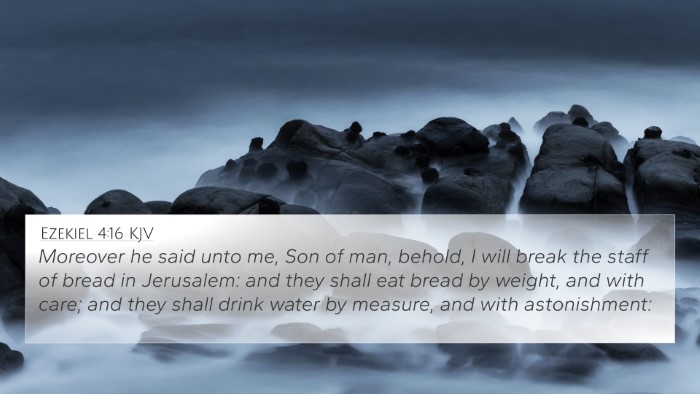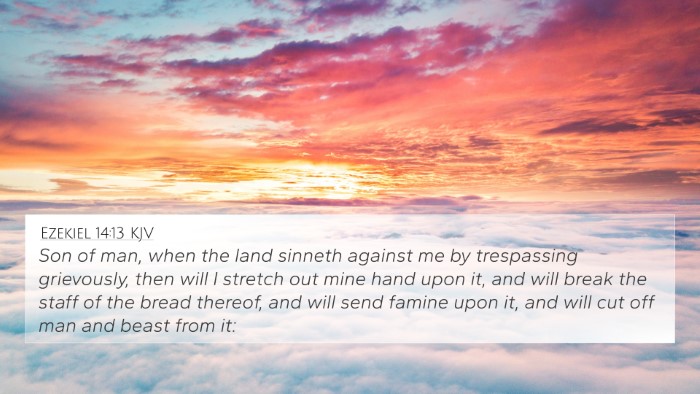Ezekiel 4:10 - Understanding the Meaning
Ezekiel 4:10 states: "And thy meat which thou shalt eat shall be by weight, twenty shekels a day: from time to time shalt thou eat it." This verse addresses God's command to the prophet Ezekiel regarding a symbolic act that reflects the Babylonian siege on Jerusalem.
Contextual Overview
The context of this command is rooted in God’s instructions to Ezekiel as a sign for the people of Israel. During this period of dire circumstances, Ezekiel's actions were meant to illustrate the severe food shortages that would plague Jerusalem during the siege.
Thematic Analysis
According to Matthew Henry, this verse highlights the state of deprivation that Israel would face, pinpointing how even the basic necessities such as food would become a measure of scarcity. Henry emphasizes the importance of obedience to God’s word as Ezekiel’s actions were a representation of judgment upon the unfaithful.
Albert Barnes adds that the specific measurement of "twenty shekels" represents a restricted ration, which symbolizes the limited supply during times of suffering. He further discusses the implications of this on the people’s faith and reliance on God amidst adversity.
In reflecting on Adam Clarke's commentary, he elaborates on the significance of this act, viewing it as a prophetic gesture that serves to warn the people of the dire consequences of their choices, reinforcing the notion that obedience to God leads to sustenance, while rebellion leads to scarcity.
Cross-Referencing Biblical Texts
This verse can be linked to several scriptural passages that echo similar themes of judgment, suffering, and divine provision. Here are 7 significant cross-references:
- Deuteronomy 28:47-48 - Discusses the curse for disobedience, emphasizing hunger and lack.
- Lamentations 4:9 - Illustrates the pain experienced during a siege, where the scarcity of food leads to death.
- Isaiah 3:1 - Speaks of famine as a consequence of judgment, aligning with the context of Ezekiel's message.
- Matthew 4:4 - Jesus’ words about man living not by bread alone, framing the spiritual dependency amidst physical deprivation.
- Revelation 6:5-6 - Describes the consequences of famine during the end times, emphasizing scarcity as a theme that continues through scripture.
- 1 Kings 17:12-14 - The story of Elijah and the widow illustrates God’s provision during a time of drought and scarcity.
- John 6:35 - Jesus as the bread of life signifies the ultimate fulfillment of spiritual and physical needs.
Inter-Biblical Dialogue
The connections between these verses create a dialogue across the Bible, showing the intricate ways in which God's Word addresses human suffering and provides hope. By analyzing verse parallels like Ezekiel 4:10 alongside these cross-referenced passages, we can gain a deeper understanding of the divine narrative throughout scripture.
Applying The Insights
The core message of Ezekiel 4:10 is to reflect on both our physical and spiritual reliance on God. As seen through the lens of various commentaries, the call to remember God's sovereignty and providence is vital during times of crisis. Cross-referencing Biblical texts enables us to grasp the holistic nature of Biblical teachings and allows deeper insights into our personal faith journeys.
Exploring Further Study Tools
For those interested in delving deeper into the connections between Bible verses, consider utilizing a Bible concordance or a Bible cross-reference guide. These tools help in identifying thematic links and understanding the broader context of specific verses.
Conclusion
The symbolic act commanded in Ezekiel 4:10 serves as a stark reminder of the consequences of disobedience and the importance of trusting God's provision. By employing cross-referencing Bible study methods and engaging with the nuances of scripture, we can enhance our spiritual understanding and nurture our faith.
